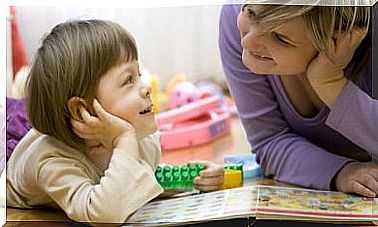7 Ways To Better Deal With Frustration

Things don’t always go the way you want them to in life. It is therefore important to know how to deal with frustration and to react positively even in difficult situations. Teach this to your children and you will save them from a lot of trouble in the future.
The ability to endure uncomfortable feelings or to cope with stressful situations is not easy to achieve. People who haven’t learned this in their childhood tend to want to resolve all of their conflicts immediately.
In other words: you try to get difficult situations over with quickly and easily. When they cannot find a quick solution to a problem, they experience a deep sense of anxiety and fear.
If you don’t know how to deal with frustration, you try to avoid challenging situations. This in turn also increases stress and anxiety.
To prevent your child from doing this, you should help them develop a tolerance for frustration.
How do you teach your child how to better deal with frustration?
A child’s immune system develops best when exposed to harmful substances. It then forms defense bodies. Therefore, children who grow up in a sterile environment are more likely to suffer from allergies and other diseases.
Something similar happens with the frustration line. It increases the more often a child is exposed to frustration. This is the first piece of advice to parents.
1. Experiences with frustration contribute to emotional development
It is normal to want to protect your child from uncomfortable situations. However, if you avoid these negative emotions, you are not allowing him to develop his skills.
Perseverance, determination and the ability to master difficult situations are only acquired when one has to overcome obstacles.
A child who knows how to deal with frustration becomes a happy and successful adult. It will know that not all experiences are beautiful, but it will get through them without suffering terrible trauma.
2. Observe before you rush to the rescue
Be patient and don’t solve your child’s problems right away. Trust in his ability to master his challenges independently.
Your child doesn’t need you for you to present them with all the solutions on a silver platter. It just takes you for you to give it a nudge in the right direction.

3. Help him express his emotions
Teach your child that they are okay to laugh or cry when they feel happy or sad. Expressing your feelings is the first way you can feel better.
All of the feelings your child has are justified and help them shape their character.
4. Establish clearly defined boundaries
Sometimes your child needs a resounding “no” from you. It may not be what it wants, but it may be what it needs right now.
It’s up to you to say “no” when your child asks about a particularly expensive toy or wants to watch TV very late at night. This way you create discipline and your child knows that they don’t always get what they want.
5. Develop strategies together to control responses
Show your child how breathing exercises, taking a walk, or relaxing music can help calm them down. Relaxation is important to get rid of the feeling of frustration.
Your child should also know that there is nothing wrong with asking for help if you cannot cope with a problem on your own.
6. Be a role model
Surely you’ve heard this many times, but still: Children learn more from your actions than from your words. If you behave calmly and something does not go as planned, your child will internalize your reaction and act that way later on.
Make sure your child is developing in an environment where people know how to deal with frustration.

7. Let your child bear the fruits of their choices
Children will have choices to make in their daily life. What it eats, what it wears, what toys it plays with; these things do not decide on their own.
Your child needs to understand that every time they make a decision, there are consequences and they have to accept them, even if they don’t like them.
This will help him in the future and allow him to think more about what he really wants.
Your child’s future depends on the guidelines you provide in the first few years of their lives. Good values, assertiveness, and resilience are the keys that will help your child be a better person.
There is no one who does not have to deal with challenges or setbacks. By helping your child learn how to deal with frustration, you will prevent them from experiencing too much stress in the future.









